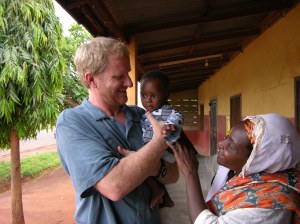MCTC’s recently hired Dean of Math and Science Chuck Paulson has co-authored a chapter, “Non-Violent Ways to Win the War on Terror” in the book, Setting the Table for Diversity (2010, National Collegiate Honors Council).
Published this month, the book is a collection of chapters on different diversity issues in higher education. Paulson’s chapter, which he co-authored with Ron Lukens-Bull (Professor of Anthropology at the University of North Florida) and Kelly Heber (an alum of the University of North Florida), describes study abroad trips to predominantly Muslim countries and their potential to change stereotypes about Americans. The authors provide a detailed account of the cultural effects of study abroad, both on the students that participate and on the local people in the countries where the students study.
Paulson began his appointment at MCTC in June. Prior to coming to MCTC, and during the writing of this chapter, he was Director of the Honors Program and Associate Professor of Biology at the University of North Florida. Paulson has led trips to a number of countries, mostly in Latin America and Africa.
The idea for the chapter originated with Kelly Heber, a former student of both Lukens-Bull and Paulson. While on a study abroad trip to Southeast Asia, she and a fellow student were leaving a mosque in Singapore when a couple of local people asked them where they were from. Heber told them that they were American students. The local people were surprised that they were Americans, since they had worn long sleeves, put scarves over their heads and had taken off their shoes and washed their feet before entering the mosque. They told Kelly that this experience had changed their negative view of Americans as being insensitive to cultural differences, particularly in the case of Muslims.
Heber wrote her senior honors thesis about the idea that study abroad not only changes perspectives of American students who participate, but also has the potential to change the views that people in other countries have about Americans.
Paulson encouraged Heber to apply to present her paper at the National Collegiate Honors Conference. Heber presented her paper, and Paulson presented a paper on how colleges can make study abroad experiences more culturally immersive. Based on their presentations, the National Collegiate Honors Council asked them to write a chapter that would be published in a book on diversity in higher education.
Heber wrote about her study abroad experiences, and Paulson and Lukens-Bull wrote about how faculty can increase the impact of these experiences by preparing students to be culturally aware as they travel. The authors found that the most striking examples came from their experiences in predominantly Muslim populations. Lukens-Bull has done extensive research in Indonesia, and led trips to Malaysia and Singapore (this was the trip that Heber participated in) and Paulson has led service-learning based trips to Ghana. In the northern part of Ghana, where Paulson’s classes carried out their community service projects, the population is about 85% Muslim.
Paulson says, “On one level this chapter is about how to make educational experiences deeper and more memorable. On another level it is about our attitudes toward other cultures and how the attitude that we choose can either limit our life experiences or make them richer.”
This work will inform Paulson’s new role at MCTC as well. “My job as Dean always includes working on how to be a community where we can all learn from each other.”






